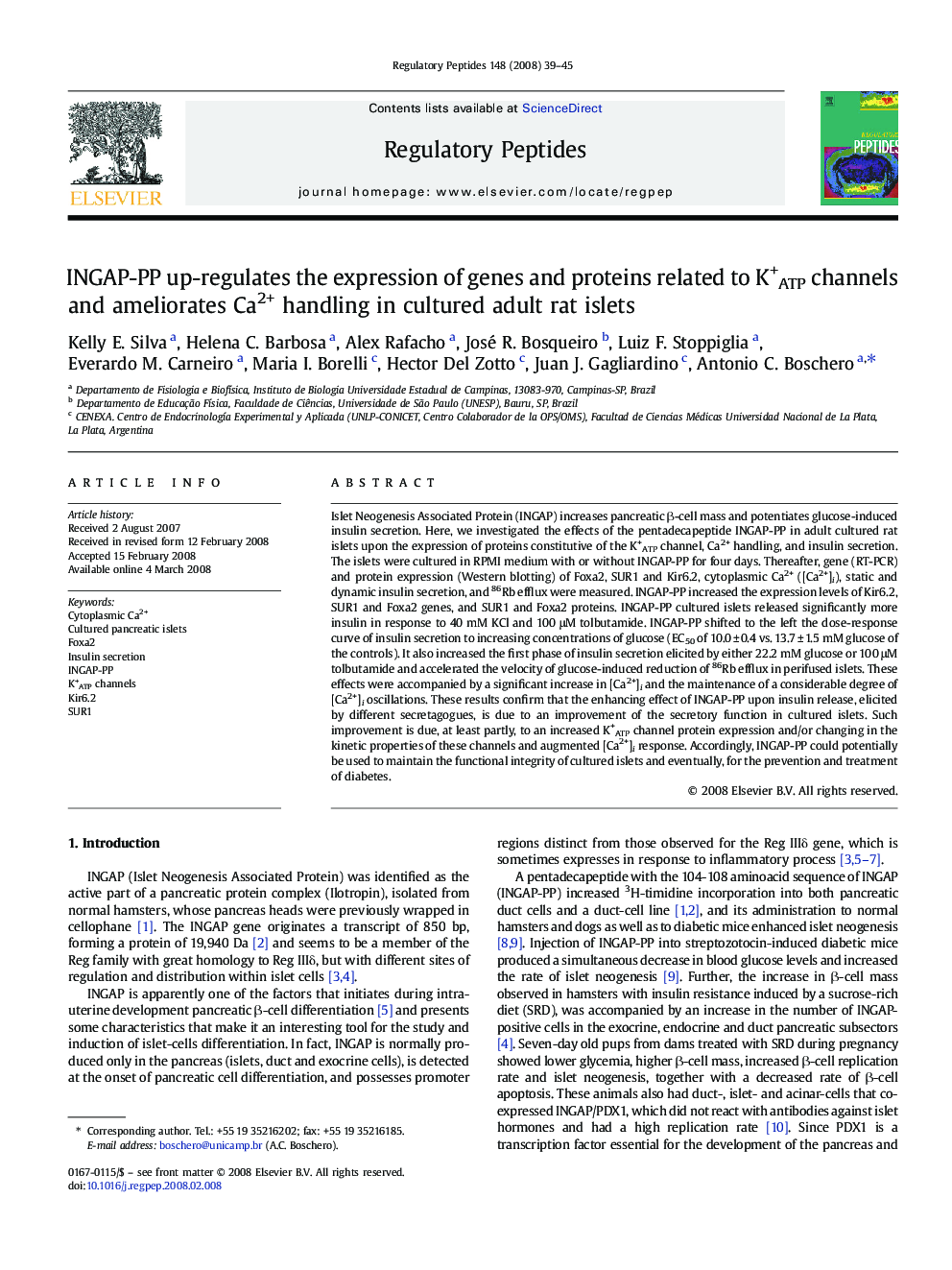| Article ID | Journal | Published Year | Pages | File Type |
|---|---|---|---|---|
| 2023182 | Regulatory Peptides | 2008 | 7 Pages |
Islet Neogenesis Associated Protein (INGAP) increases pancreatic β-cell mass and potentiates glucose-induced insulin secretion. Here, we investigated the effects of the pentadecapeptide INGAP-PP in adult cultured rat islets upon the expression of proteins constitutive of the K+ATP channel, Ca2+ handling, and insulin secretion. The islets were cultured in RPMI medium with or without INGAP-PP for four days. Thereafter, gene (RT-PCR) and protein expression (Western blotting) of Foxa2, SUR1 and Kir6.2, cytoplasmic Ca2+ ([Ca2+]i), static and dynamic insulin secretion, and 86Rb efflux were measured. INGAP-PP increased the expression levels of Kir6.2, SUR1 and Foxa2 genes, and SUR1 and Foxa2 proteins. INGAP-PP cultured islets released significantly more insulin in response to 40 mM KCl and 100 μM tolbutamide. INGAP-PP shifted to the left the dose-response curve of insulin secretion to increasing concentrations of glucose (EC50 of 10.0 ± 0.4 vs. 13.7 ± 1.5 mM glucose of the controls). It also increased the first phase of insulin secretion elicited by either 22.2 mM glucose or 100 μM tolbutamide and accelerated the velocity of glucose-induced reduction of 86Rb efflux in perifused islets. These effects were accompanied by a significant increase in [Ca2+]i and the maintenance of a considerable degree of [Ca2+]i oscillations. These results confirm that the enhancing effect of INGAP-PP upon insulin release, elicited by different secretagogues, is due to an improvement of the secretory function in cultured islets. Such improvement is due, at least partly, to an increased K+ATP channel protein expression and/or changing in the kinetic properties of these channels and augmented [Ca2+]i response. Accordingly, INGAP-PP could potentially be used to maintain the functional integrity of cultured islets and eventually, for the prevention and treatment of diabetes.
